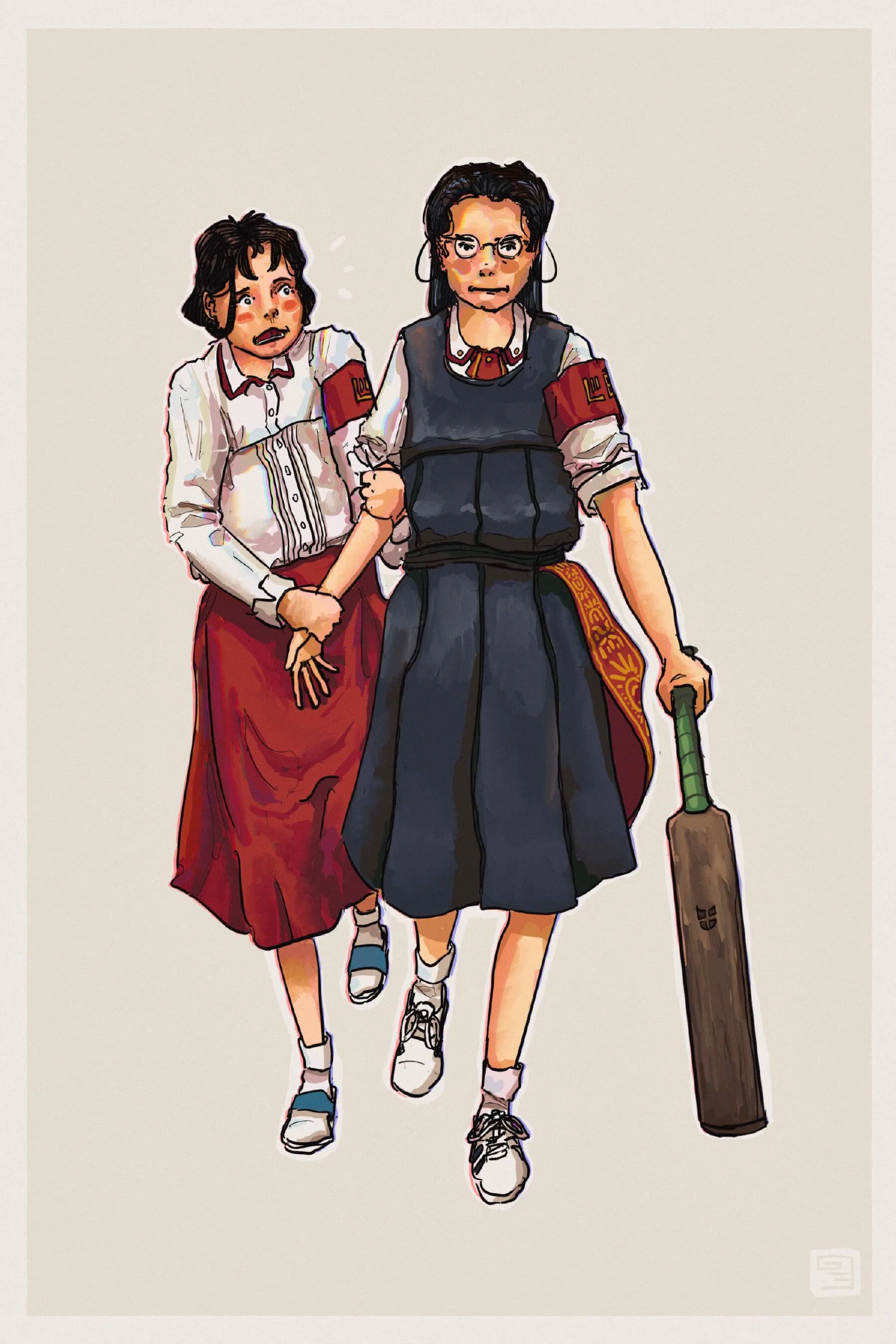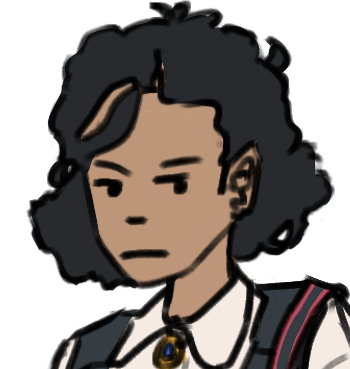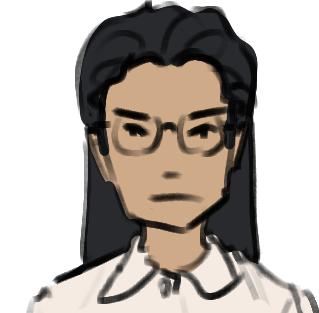NEW Story: Sunday Morning
Justice

This article is not part of Vekllei canon. It may be old, obsolete or just a bit of fun.
Lin Zhi was nuts. She was lovely, but she was nuts. Tzipora followed along, pleading occasionally, a squeaking voice of concern. The cricket bat dragged and bounced along the poor road sealing.
“You could go to prison,” Tzipora said, protesting weakly. “Why not send Moise and his boys? They’ll put the fear of God in him.”
“This is stupid,” Zhi said in clumsy Vekllei, staring ahead. “You do not know what it’s like.”
“I do know,” Tzipora whined. Between their second-hand Vekllei and conflicting accents, they struggled to understand each other. “They call me a gypsy bitch. But I don’t hit them. And not with a bat.”
Zhi and Zelda were much alike. They were both fresh immigrants of school age, and stepped ashore with shadows of a world far beyond Vekllei’s utopian domesticity. Tzipora had spent time indigent in America, nearly lynched in Utah. Zhi had lost her father and uncle to the purges in Red China. Zhi told Tzipora she was the great-great-granddaughter of a hero of the communist party, who’d fought with Mao Tse-tung himself over a century ago. Tzipora did not enquire further, since she knew as much about China as she did the moon.
“No one is asking you to come,” Zhi said, marching ahead as Tzipora trailed.
“Don’t be silly, I’m coming with you. Of course I’m coming with you. I just don’t want you to ruin your life over some words.”
“Words add up,” Zhi said quietly.
The rest of Zhi’s seven sisters had taken European names to better assimilate into the hectic transcontinental aliyah of postwar Vekllei. Not Zhi, though. She was wilful and clear-minded, maybe recklessly. Tzipora liked her and feared her, perhaps because she saw herself in Zhi’s frequent outbursts of anger and principled view of the world.
The Floral Period was stuffed with new citizens, many of them in disfavour of the politics of their home country. Many of them came from Asia — Ayn’s father was a Hong Konger, and Jiro was from Tokyo. Vekllei’s people were indigenously “Asiatic in appearance,” as Europe called them. Most were descended from a mixture of Arctic peoples and Irish or Scandinavian settlers. To this end, Vekllei’s complicated ethnic makeup contributes to the country’s obscurity from the U.S. and Europe, as they tend to be orientalised outside of Western concern. This discrimination does not stop Vekllei people from maintaining ignorant ideas towards its incoming East Asian and South-East Asian migrants, however, and people like Zhi often had to deal with racist abuse in public and in private.
“Why don’t we be smart about this?” Tzipora asked, upset. “What he did to you is against school policy. He’ll be thrown out — it’ll ruin him. That’s what hurts, really. Trust me, I know. I know what it’s like for you, too. But he wants to go to the National University. If we get him thrown out, that would ruin him.”
Zhi scoffed, and shook her head. “That you could think the school would do anything shows how little you know,” she said.
“Baron is powerful. He can lean on them. He does it all the time, he’d help if I asked. I know he would.”
Tzipora stepped in front of her, and put her arms out. Her eyes were shining with tears.
“I was going to get expelled for putting a girl’s head through a window, and it was like this,” Tzipora said, sniffling. “She picked on me every day. Every day, she knew I was lonely and sad so she’d scare me. And one day I snapped and put her head through the window. I was going to be expelled, and my life would have ended there. But Baron knew I was right, and he stepped in. Sometimes that’s all it takes, to beat them. It just takes an outsider.”
Zhi had stopped marching, and leaned on the bat. She was out of breath. She shook her head and tossed the bat at Tzipora’s feet.
“Okay,” she said. “Because I like you, Zelda, that’s all. Don’t tell him anything. Don’t tell anyone anything. This is my problem. But I don’t want to upset you. We’re quite similar, I think.”
“Too similar,” Tzipora said, wiping her eyes. “But it’s not our fault. Not really.”

